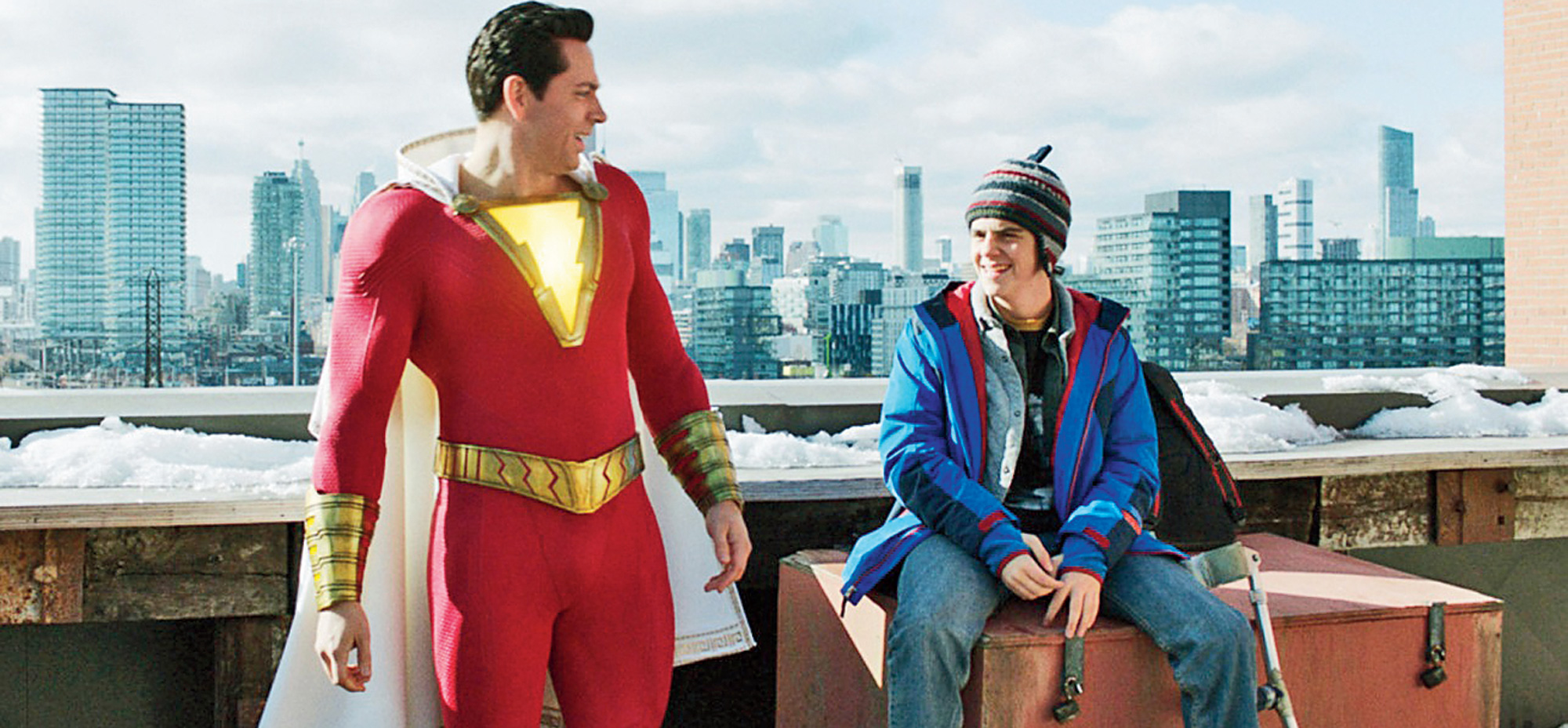The brood in Fighting With My Family is a rambunctious crowd. There’s mum and dad Knight, and a handful of adult kids (one’s doing time). Professional wrestlers all, they grapple with one another in and out of the ring while running a gym in Norwich, England. They know how to put on a good show, how to turn the mat into a stage with thumps and grunts, stomps and smashes. The family that smacks down together stays together, or at least that’s the idea in this charmer about love and choreographed war.
The writer-director Stephen Merchant plunges into the domestic fray straightway, opening with a peek at the Rock, aka Dwayne Johnson, living the dream on the Knights’ television. Johnson is one of the movie’s producers as well as one of the story’s leading talismans, the embodiment of the Knight family ideal. A poster of him from his title glory days hangs in the bedroom of the family’s daughter, Paige (Florence Pugh), who’s been wrestling since she was a young teenager. Alongside her older brother Zak (Jack Lowden), Paige is carrying on a tradition begun by her parents, Ricky (Nick Frost) and Julia (Lena Headey), who found salvation both in each other and inside the ring.
Like all genre movies, sports stories tend to cling to a familiar template, one involving struggle, tears, heart, soul and triumph — cue the cheering crowd. Fighting With My Family isn’t much different, which is extremely and shrewdly on point for a movie about professional wrestlers with bigger-than-life personalities and flamboyant stage names who, in a circumscribed space, deliver precisely coordinated, rule-bound narratives of victory, agony and defeat. Like genre cinema, professional wrestling strikes a balance between convention and innovation, between what the crowd knows (expects) and the surprises, the little deviations from the usual script, that can drive it to its feet.
Much of the movie turns on a sibling rivalry that upends and nearly rends the family when Paige, selected at an audition for World Wrestling Entertainment, is shipped off to a Florida boot camp. (WWE Studios helped make the movie.) While Paige — a Goth girl with a heavy curtain of jet-black hair — struggles to fit into the competition, where the tanned and the blond rule, often in bikinis, Zak licks his wounds at home, trying and generally failing to deal with disappointment. As Merchant toggles between Zak in Norwich and Paige in Florida, he settles into a familiar struggle between authenticity and artificiality, a seemingly odd divide on which to hang a tale of professional wrestlers.
If it works, it’s partly because of the easy allure of authenticity narratives, even the most contrived. Paige considers the other female competitors suspiciously, unwittingly condescending to them because she doesn’t view them as real wrestlers. For Paige, her authenticity is a given, even if her professional persona — which changes along with her wrestling name — is a construct. Merchant gently plays with this idea, mostly to fill in the story as she progresses from obliviousness to self-knowledge and the inevitable third-act clinch. (The genesis of the movie is an entertaining, more open-ended Channel 4 television documentary about the Knights, The Wrestlers: Fighting With My Family.)
Like its amiable, irresistible menage, the film softens its rougher edges with humour. It’s often broadly funny but never mean or patronising; it takes the Knights, their eccentricities and quixotic aspirations seriously, but not enough to squelch the fun. At times, particularly when the family is in its element at its gym, which does double-time as a refuge for young neighbourhood strays, the movie evokes the working-class milieu familiar from British filmmakers like Mike Leigh and Ken Loach. Merchant doesn’t seem keen to score political points, but he nevertheless quietly delivers some truths amid the laughter and hurt.












